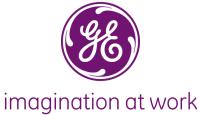


ICCV 2007
Eleventh IEEE International Conference on Computer Vision
Rio de Janeiro, Brazil, October 14-20, 2007
ICCV 2007 New AwardsThis year, for the first time, we have introduced two new awards. The recipients of these awards were decided based on the recommendation of two independent committees.
ICCV 2007 Other AwardsMarr Prize Paper Award
Honorary Paper Mentions
Outstanding Reviewers
For all the awards, we greatly appreciate the generous corporate sponsorships given by GE, Honeywell, IBM, Microsoft and Siemens.
|
|
Notes on Paper Acceptance Statistics and Reviewing Process: In ICCV'07, the call for papers resulted in close to 1,300 submissions, the highest ever since the inception of ICCV in 1987! 1190 met the submission guidelines and were reviewed. These 1190 submissions were subjected to a rigorous review process consisting of two phases. In the first phase, introduced for the first time at this ICCV, each paper was sent to 10 reviewers who had to provide an Accept/Reject decision without a written review. A detailed questionnaire was provided in order to calibrate the reviewers in making their decision. Papers whose ratio of Accept scores was above a threshold were moved into the second reviewing phase which was conducted as in previous years where each paper was reviewed by three reviewers selected and supervised by an Area Chair. The phase-1 reviewing process is a response to the growing number of submissions and to the difficulty in maintaining a body of reviewers commensurate in size and quality for the task. Inexperienced reviewers inject noise into the reviewing system which is then difficult to correct as time and resources of the ACs are limited. By filtering out the weakest papers before the actual reviewing (phase-2) takes place, makes it possible to have a smaller set of experienced reviewers for phase-2 and thus reducing the chances of judgment errors on the papers in this phase. By having 10 reviewers examine each paper during phase-1 reduces any biases that might have occurred with a smaller set of reviewers and this hopefully compensates for the lack of a written review during the phase-1 process. In order to test the success of this 2-phase review system we randomly selected 100 phase-1 rejected papers with scores between 0.2 and 0.55, and moved them into phase-2 where they were subjected to the same reviewing process as the other papers that passed the phase-1 threshold. Specifically, the phase-1 rejection threshold was 5/9= 0.56 which resulted in 422 papers being rejected (100 of these were moved into phase-2 for test purposes). The phase-2 process culminated in the AC meeting held at Rutgers University, where pairs of ACs were responsible for jointly processing their respective batch of papers followed by additional discussions held in four groups of 7-8 ACs. Each AC group met in a separate room. All oral paper decisions in an AC group were made based on the unanimous vote of all the ACs in this group. Papers from ACs in a group were reviewed by the other AC groups. Out of the 868 papers reviewed in phase-2 we have accepted 47 orals and 233 poster papers. Therefore, the overall conference acceptance ratio is 23.5%, while for orals is 3.9%. Among those 100 test papers, 7 were accepted (one of them as oral). For all these papers, the phase-1 score was very close to the rejection threshold of 0.56. In particular 4 of them received a score of 0.5, 2 received a score of 0.44, and one received a score of 0.4. |
Corporate Sponsors | |
 |
 |
 |
 |